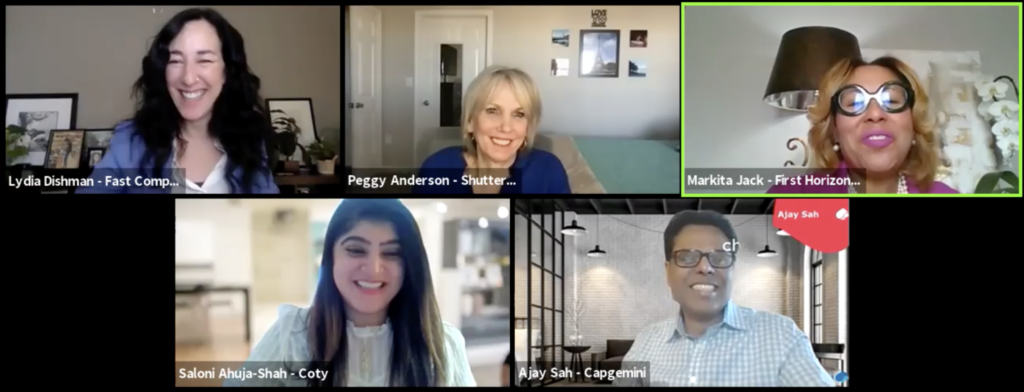Is Your Employer Reputation Keeping Up With the Times?


Markita Jack has been working for First Horizon Bank for 21 years. Now the SVP of diversity and inclusion, she has always valued her company’s people-first approach and attention to social-justice issues. Last year, however, she gained a new appreciation for her corporate culture in the wake of the police killings of Breonna Taylor, George Floyd, and other Black people. Colleagues spontaneously reached out to her, a woman of color, expressing empathy for the situation in a way that felt genuine. In the midst of COVID-19, their extra measure of compassion was notable. “The pandemic only really shone the light on what we already knew about our culture in our organization,” she said. “But sometimes when you live in something, and you become accustomed to being in it, you don't really appreciate what you have, until then.”
The banking executive talked about her experience in a panel discussion titled “Is Your Employer Reputation Keeping Up With the New World?,” a session during From Day One’s recent conference on acquiring skilled talent in the coming year. The speakers, all HR leaders, emphasized that an employer’s reputation is crucial in hiring and retaining sought-after workers–and that the components of that reputation include supportive corporate culture, a sense of mission, and humane working conditions. Among their observations:
“Closer Than Ever,” the Importance of Company Culture: “What we have witnessed and seen has brought us together, more than ever,” said Ajay Sah, a VP and head of talent acquisition at Capgemini, a global consulting and technology firm. “I have been more close to my ecosystem, my colleagues, my customers. I've been more close to them today than ever, including my candidates-to-be, to be honest,” said Sah, a 15-year veteran of the company.
The importance of building a strong culture in calmer times is to prepare for the inevitable crises down the line. “We were able to respond to 2020, based on what the foundation that we'd already laid prior to 2020,” said Jack. “But that is why it's great as an organization to always be engaged, to always show who you are in the community, to always support your associates.” She added: “Can you imagine not having a great culture, not having connectivity, not having teamwork, and then experiencing the tsunami that we experienced last year?”
Your Mission Is Your Brand: “Candidates are interviewing you!,” said Saloni Ahuja Shah, head of talent acquisition at Coty, the global beauty company. “I’ve been asked, both from entry-level and C-level candidates, “What are you doing differently? How are you handling the COVID crisis?” The answers tell how empathetic a company’s leaders are in the moment, but in the long run, having a genuine mission is what leaves a lasting impression on prospective employees.

In the case of Coty, celebrating diversity has become a core value, Shah said. The company has long been associated with iconic brands including Calvin Klein and Gucci, but more recently, brands like Kylie Skin by Kylie Jenner. “Some of the brands we have in house are in tune with the world around us, so that corporate [management] can get wind of what's happening in the marketplace,” Shah said. “Kylie’s following is incredibly diverse, and it is dominated by people of color. And she has done a really tremendous job in speaking up, as has her sister, Kim Kardashian West, with social justice and police reform. People can laugh about it all they want on social media, but what's right is right, and she was doing the right thing.” The company’s message, as a whole, has gone from the old-school entrepreneurial “Own it, Thrive it,” to “Beauty Within,” conveying a sense of going beyond the superficial idea of attractiveness.
Capgemini’s Sah affirmed the importance of a company’s mission, and emphasized that an employer brand has to be genuine. “The future of talent acquisition is talent branding, engaging talent at scale using technology,” he said. “But before you give a message, you have to have a message.”
Benefits Won’t Just Be About Perks or Money: The pandemic has reshaped work culture, creating a crisis in caregiving, especially for working moms. Employers should try to help in every way they can, but that has to be balanced with the realities of business in a recession. “Let’s be honest: 2020 was a rough business year, for almost every American company,” said Peggy Anderson, who leads talent acquisition at Shutterfly. “2021 is going to be a challenge in order to be able to get the business going. It could be challenging for companies to add benefits. We’re still rebounding. But what we have done is shine a spotlight on the benefits we do have.”
Specifically, she said, managers were instructed to embrace a philosophy that doesn’t necessarily cost money, which is primarily about flexibility, or the compassionate “grace and space." A 9-to-6 schedule no longer meets the needs of employees who, say, from 8 to 12 have to supervise their child’s remote-school session. And no one should expect to have a perfectly laid-out plan. “As much as I would love to say we’ve been so strategic, that’s not the case,” said Jack. “We’re looking at lagging indicators–we did not have predictive analytics. We changed tires on a moving truck. We iterated along the way.”
Added Coty’s Shah: “We’re not in a position to give more in terms of money. But we can give more in terms of time, in a context of an agile work environment. Covid was a beta test to see if it worked, and it worked.” Lesson learned: When companies can respond well to challenging times by challenging their own assumptions, word gets around.
Angelica Frey is a writer and a translator based in Milan and Brooklyn.
The From Day One Newsletter is a monthly roundup of articles, features, and editorials on innovative ways for companies to forge stronger relationships with their employees, customers, and communities.